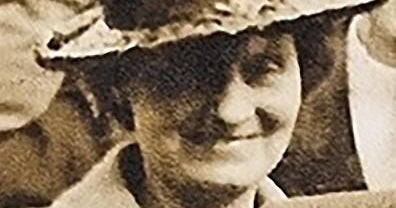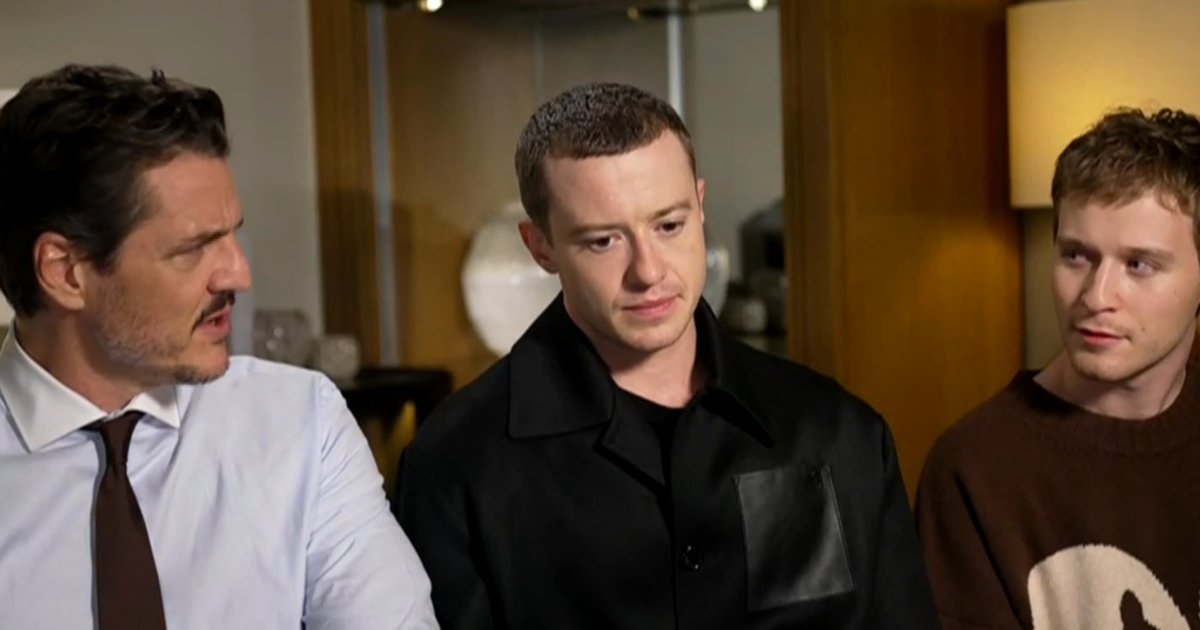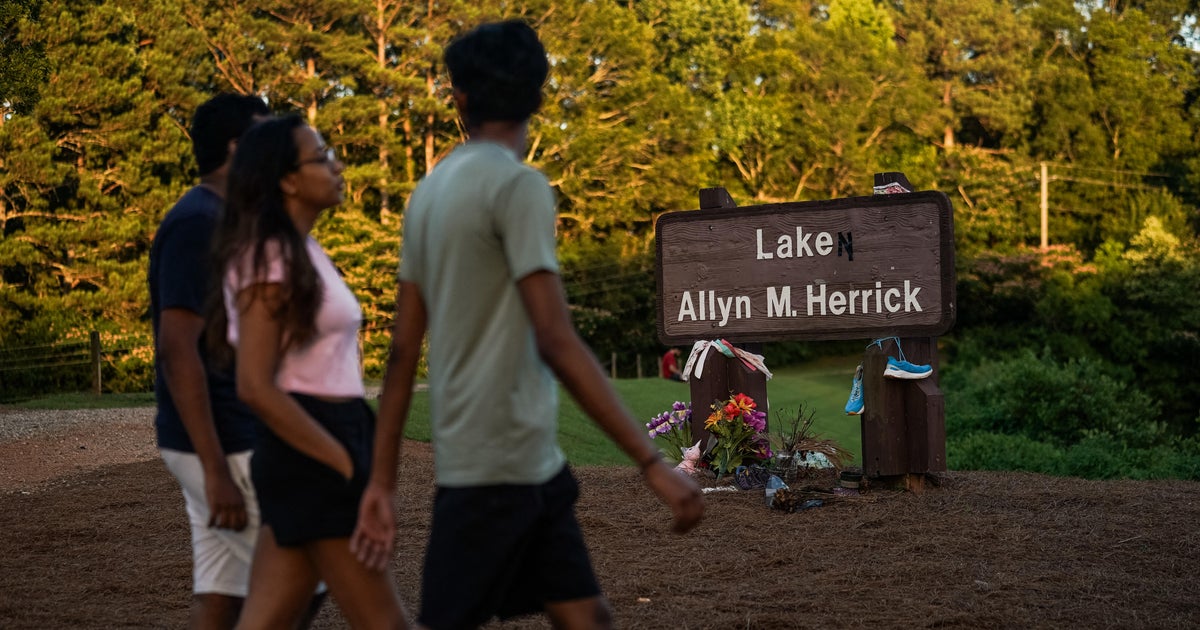"Master Slave Husband Wife": A startling tale of disguise to escape slavery
Inside the Boston Public Library, deep in the stacks, are clues to an escape from slavery in 1848 – a breathtaking combination of daring and deception. Author Ilyon Woo, who has spent the last seven years combing through archives from Georgia to Massachusetts, showed "Sunday Morning" an illustration of Ellen Craft, an engraving based on a daguerreotype image. "There's just something magical when you hold this paper in your hands," she said.
Ellen Craft was an enslaved woman and seamstress living in Macon, Georgia, in the 1840s. She was the daughter of an enslaved woman who had been impregnated by her White enslaver. "When Ellen Craft was 11 years old, her mother, Maria, had to watch as her daughter was given away as a wedding gift to her enslaver's oldest daughter – her half-sister," Woo said.
In her early 20s, Craft married an enslaved man, William Craft, a skilled cabinetmaker. "They were afraid to have children in slavery," said Wood, "because their enslaver could reach down into the cradle that they had made for their child and take their child away. And there's nothing they could do in the slave system in order to stop that."
They came up with a bold plan: Ellen would disguise herself as a wealthy White man who was traveling with "his" enslaved person: her husband, William. They would escape to the North in plain sight.
Woo lays out the Crafts' story in her new book: "Master Slave Husband Wife," published by Simon & Schuster (part of CBS' parent company, Paramount Global).
"She put on this disguise to conceal both her gender and her race," said Woo. "And to that, she added disability. She knew that she would have to sign for William, as her slave, at various hotels and other stops. And she couldn't do that because she'd been denied literacy. And so, she had to figure out how to get somebody else to sign for her or avoid that situation. So, she puts her arm in a sling. And she also puts poultices on her face. It almost serves as a kind of a mask."
The Crafts made their way from Macon through the South, on trains and steamboats, fending off challenges from passengers and ticket agents. It all almost ended in Baltimore, the last stop before the North. An officer confronted them, and Ellen argued back, saying "You have no right to detain us here."
"Finally the official says, 'All right, I'll just let you go,'" said Woo.
"So, it's almost like a wartime border crossing?" asked Whitaker.
"Yes!"
As a child, Peggy Trotter Dammond Preacely learned about her great-great-grandparents' incredible journey. "As Black people in America, we have to wear a mask often," she told Whitaker. "We can't always allow people to know what we're thinking. So, this masking, and this disguise, and this ability to be in the room and absorb, was so incredible that it enabled them throughout their four days of escape to encounter certain situations and figure out what to do."
The Crafts traveled first to Philadelphia, then Boston, where they became the toast of the abolitionist community. They spoke at historic Faneuil Hall, and became part of a road show featuring abolitionists like William Wells Brown and Frederick Douglass.
The Crafts stayed at a house in Boston's largely Black Beacon Hill neighborhood. But the danger wasn't over. The public attention alerted their former enslavers, who sent so-called "slave-hunters" up North to capture them. Congress had just passed the Fugitive Slave Act of 1850, which required the public to help capture enslaved people who escaped.
But the abolitionist community in Boston wasn't having it. The slave-hunters were harassed, both by rock-throwing crowds and the legal system.
According to Woo, "There were lawsuits against the slave hunters so that they would keep them busy, and there were smaller, pettier arrests as well. They would get arrested for chewing tobacco or driving too fast."
The slave-hunters fled from Boston. But the Crafts still didn't feel safe. They uprooted their lives again, this time sailing to Halifax, Nova Scotia, and then to Liverpool, England. There, they finally learned to read and write.
In addition to letters to supporters, they wrote the story of their escape, "Running a Thousand Miles for Freedom," published in 1860.
Woo said, "Almost as soon as they arrive in a safe space, they do pursue their twin dreams: One is literacy and learning, and the other is to have a free-born child."
About a year after their arrival, they had their first child, Charles Estlin Phillips Craft. Altogether Ellen and William raised five children.
Great-great-granddaughter Peggy Preacely said, "I believe that legacy of the Crafts is really a part of all of our family, all of the descendants." She channeled that legacy into civil rights advocacy, putting her at the center of the movement in the 1960s, joining marches in the South. She showed Whitaker a photo of her attending a Student Nonviolent Coordinating Committee/Albany Freedom Movement event in Albany, Ga., in 1962: "We were jailed twice while we were there, once in a stockade. And it was my third time in jail in the movement."
Preacely is also a poet, and has used poetry to keep the daring spirits of Ellen and William Craft alive:
Today, we stand,
our family in a perpetual circle of grace.
Listening to our ancestors,
calling to us through blood and sacrifice and communal space,
to rise, continue, celebrate,
and persist on this continuum
of collective effort and individual sacrifice.
Following their steppingstones to liberation.
READ AN EXCERPT: "Master Slave Husband Wife" by Ilyon Woo
For more info:
- "Master Slave Husband Wife: An Epic Journey from Slavery to Freedom" by Ilyon Woo (Simon & Schuster), in Hardcover, eBook and Audio formats, available January 17 via Amazon, Barnes & Noble and Indiebound
- ilyonwoo.com
- Peggy Trotter Dammond Preacely
- African American Cultural Center of Long Beach, Long Beach, Calif.
- Boston Public Library
- Massachusetts Historical Society
- Savannah College of Art and Design
Story produced by Alan Golds. Editor: Ed Givnish.
See also:
- "Omar," an opera illuminating a Muslim slave's life in America ("Sunday Morning")
- Confronting history to heal a nation ("Sunday Morning")
- A historical reckoning for the global slave trade ("Sunday Morning")
- Passage: The story of Juneteenth ("Sunday Morning")
- Tracing the remarkable life's path of Harriet Tubman ("Sunday Morning")







